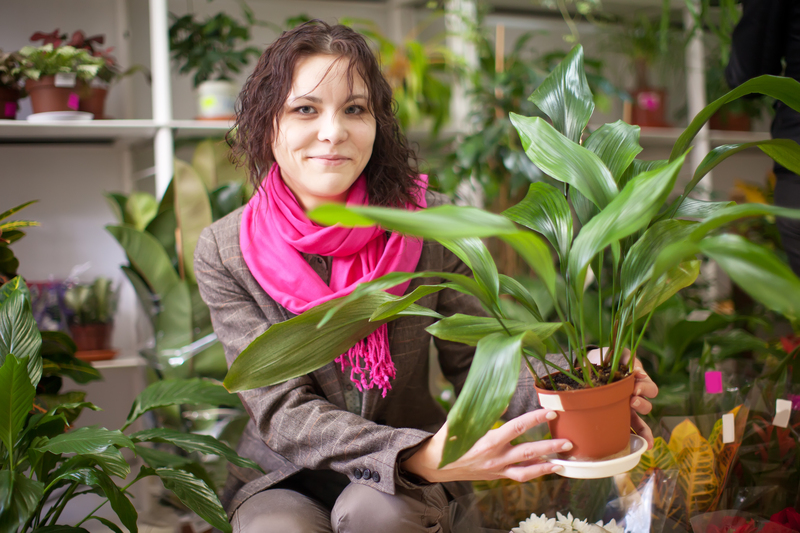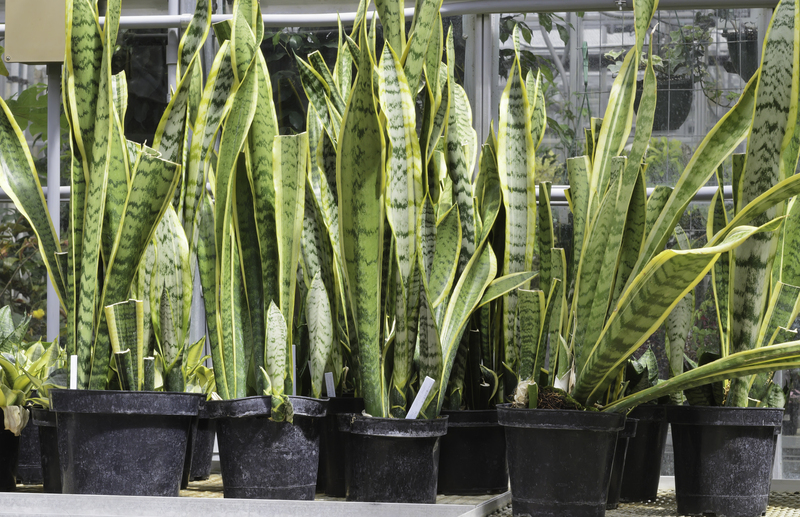Top 9 Gardening Tips Every Beginner Should Know
Posted on 23/05/2025
Top 9 Gardening Tips Every Beginner Should Know
Are you new to the wonderful world of gardening? Whether you have a sprawling backyard or a small balcony, starting your first garden can be both exciting and intimidating. With so much information out there, it can be hard to know where to begin. Don't worry--this comprehensive guide covers the essential gardening tips that every beginner should know to create a thriving, beautiful garden. From understanding your space to nurturing your plants, these expert-backed tips will help you grow with confidence.
1. Assess Your Garden Space
Before planting the first seed, it's crucial to understand your growing environment. Does your space get plenty of sunlight? How's the soil condition? What about local weather? Taking time to analyze your site will set the groundwork for gardening success.
- Sunlight: Most vegetables and flowers need at least 6 hours of sunlight per day. Observe your garden area throughout the day to record sunny and shaded spots.
- Soil: Check the soil quality by digging a small hole and squeezing the soil in your hand. Good soil is crumbly and rich in organic matter.
- Water Access: Make sure your garden location is within easy reach of a hose or watering can.
- Weather Patterns: Research your region's climate and know the length of your growing season.
Understanding your garden's unique conditions will inform your plant choices and layout.

2. Start with Easy-to-Grow Plants
When you're new to gardening, it's best to choose beginner-friendly plants that are low-maintenance and adaptable. This initial success will motivate you to expand your garden in the future!
- Herbs: Basil, mint, chives, and parsley are forgiving and great for containers or beds.
- Vegetables: Lettuce, radishes, tomatoes, and green beans are (relatively) easy for new gardeners.
- Flowers: Marigolds, sunflowers, zinnias, and pansies quickly brighten up any garden space.
Research your plant choices for your growing region to ensure greater gardening success.
3. Know When and How to Plant
Each plant has its own ideal planting time. While some seeds thrive in cool soil, others need warmth to germinate. Reading seed packets or plant labels gives you valuable information about planting depth, spacing, and timing.
- Frost Dates: Find out the last spring frost and first fall frost in your region for best planting times.
- Succession Planting: Stagger your plantings for a continuous harvest throughout the season.
- Starter Plants: Consider buying small plants from nurseries to give yourself a head start.
Tip: Keep a simple gardening calendar to track your planting and harvesting dates for future reference.
4. Invest in Good Soil and Compost
The secret to a thriving garden? Healthy, nutrient-rich soil! Quality soil supports strong root development, improves drainage, and provides essential nutrients for plant growth.
- Amend Soil: Mix in organic matter such as compost, manure, or peat moss to enhance soil texture and fertility.
- Composting: Start a compost pile or bin for kitchen scraps and yard waste--it's an eco-friendly way to enrich your soil.
- Mulch: Adding a 2-3 inch layer of mulch helps retain moisture, prevents weeds, and regulates soil temperature.
Remember, soil health is the foundation of successful gardening, so invest wisely!
5. Water Wisely
Overwatering is a common mistake for new gardeners. Most plants dislike "wet feet" and prefer evenly moist--not soggy--soil. Begin by understanding the water requirements for your chosen plants.
- Water Early: Water gardens in the morning to reduce evaporation and avoid fungal diseases.
- Soak Roots: Water at the base of plants instead of overhead--this encourages deep root growth.
- Check Soil Moisture: Stick your finger an inch into the soil; if it's dry, it's time to water.
- Consistency: Establish a watering routine, especially during hot, dry spells.
Tip: Mulching also helps conserve water and reduces how often you need to water.
6. Feed Your Plants
Plants, like people, need proper nourishment! Fertilizing provides necessary nutrients not always present in soil. As a beginner gardener, start with a balanced, slow-release fertilizer suitable for your plants.
- Organic Options: Use compost, aged manure, fish emulsion, or seaweed extract for a natural boost.
- Follow Instructions: Too much fertilizer can harm plants, so always follow label instructions!
A good feeding schedule will encourage vibrant blooms and bountiful harvests.
7. Stay on Top of Weeds and Pests
Even the best-tended gardens face challenges from weeds and garden pests. Staying proactive can save you time and heartache later!
- Mulching: An effective weed barrier that also keeps soil moist.
- Hand-Pulling: Remove weeds as soon as you spot them, especially before they set seeds.
- Natural Pest Control: Attract beneficial insects, use neem oil, or introduce companion planting techniques to reduce pest problems.
- Inspection: Regularly check under leaves and stems for insects or disease symptoms.
Tip: Healthy plants are naturally more resistant to common pests and diseases.
8. Prune and Maintain Your Plants
Regular maintenance helps your garden stay neat, productive, and healthy. Proper pruning encourages new growth and prevents disease from spreading.
- Deadheading: Remove spent flowers on annuals and perennials to extend blooming periods.
- Trimming: Prune dead or diseased branches and stems with clean, sharp tools.
- Pinching: For certain plants like basil, pinch back tips to promote bushier growth.
Routine care also includes staking tall plants, cleaning up debris, and supporting heavy-laden stems.
9. Keep Learning and Have Patience
The best gardeners are lifelong learners! Gardens are always evolving, and so are your skills. Don't get discouraged by setbacks; every mistake is an opportunity to improve.
- Read Books and Blogs: There are plenty of gardening books, online articles, and forums tailored for new gardeners.
- Join Local Groups: Garden clubs and community gardens offer a wealth of shared knowledge and support.
- Document Your Journey: Keep a garden journal to note what worked--and what didn't--for next year.
- Enjoy the Process: Remember, gardening is as much about relaxation and enjoyment as it is about results.
Patience really is a gardener's greatest virtue. Nature works on its own timeline, so give your plants the time they need to flourish.
Bonus Tip: Make It Fun!
Gardening should be a joyful and rewarding experience. Don't be afraid to experiment, try new plants, and personalize your space. Add garden decor, grow colorful pollinator-friendly flowers, or start a themed herb garden. Making your garden reflect your personality will help you stick with it--and love every moment.

FAQs about Gardening for Beginners
What is the easiest way to start gardening for beginners?
Begin with container gardening or a small raised bed. Select a few easy-to-grow plants, use quality soil, and water as needed. Gradually expand as you gain confidence.
How much time do I need to maintain a beginner garden?
A well-planned beginner garden can be maintained in 15-30 minutes a day, including watering, weeding, and general care.
What mistakes should new gardeners avoid?
Common mistakes include overwatering, planting out of season, neglecting soil quality, and overcrowding plants. Start small and follow these top gardening tips to avoid these pitfalls.
Conclusion: Start Your Gardening Journey Today!
Whether your dream is to harvest homegrown vegetables or create a flower-filled sanctuary, these top 9 gardening tips every beginner should know will help you get started and thrive. Remember, successful gardening is about observing, caring, and learning along the way. Armed with these beginner-friendly tips, you'll soon find your "green thumb" and grow a garden you'll be proud of.
If you're ready to dig in, follow these proven strategies, embrace the ups and downs, and don't be afraid to get your hands a little dirty. Happy gardening!
- Want more tips? Bookmark this guide and check back for updates as you gain gardening experience.
- Share your gardening successes and questions in the comments below!
Latest Posts
Uncover Must-Have Tools for Every Outdoor Gardner
Secrets to growing healthy and flourishing orchids
Container gardening explained: A modern approach
The Green Revolution: Gardening's Role in Fighting Climate Change

